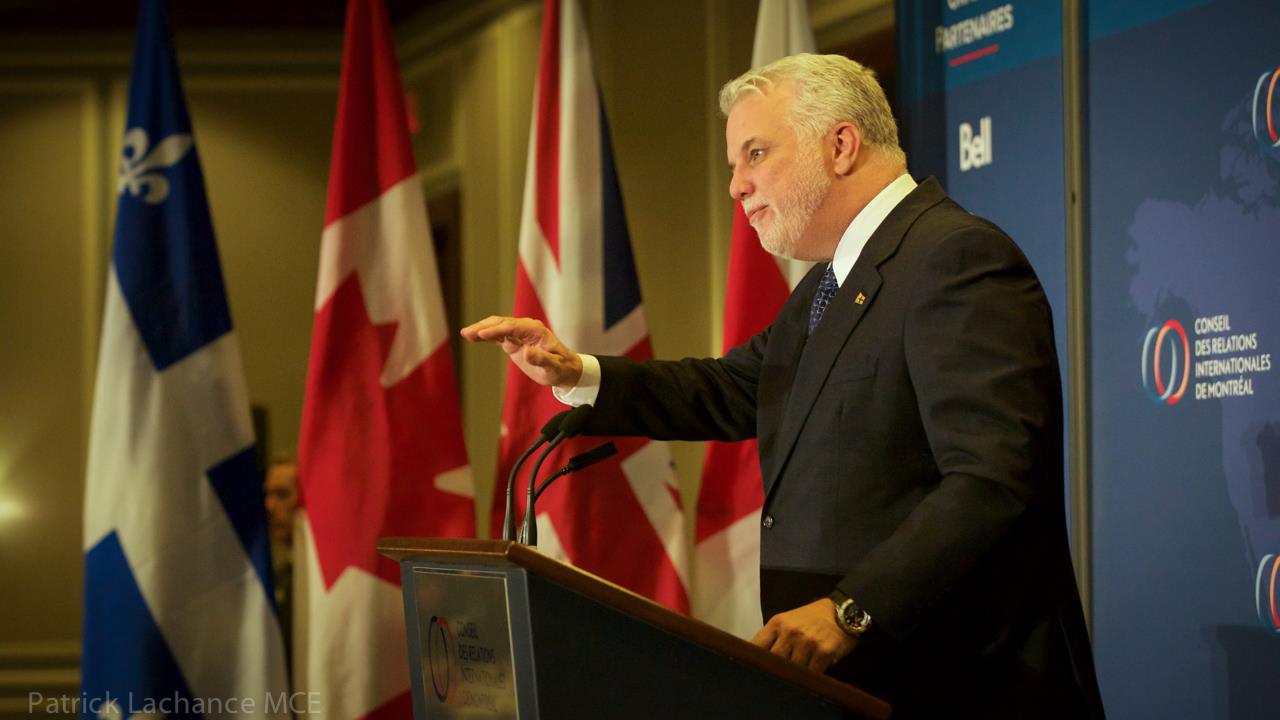Canada News
Softening supply management would have political consequences, Couillard says

While his remark was delivered tongue-in-cheek, his words underscored the political and economic importance of supply management in Quebec, which accounts for about half the country’s dairy farms. (File Photo: Philippe Couillard/ Facebook)
MONTREAL — Liberal Leader Philippe Couillard warned Wednesday of “serious political consequences” if there is any further dismantling of Canada’s supply management system.
Asked on the election trail how far he would go to protect the province’s dairy farmers, Couillard borrowed a phrase made famous by former prime minister Pierre Elliott Trudeau during the 1970 October Crisis.
“Just watch me,” he said to laughter.
While his remark was delivered tongue-in-cheek, his words underscored the political and economic importance of supply management in Quebec, which accounts for about half the country’s dairy farms.
During the first week of the campaign, the major party leaders have vied to position themselves as the defenders of Quebec dairy as the industry comes under increasing scrutiny during NAFTA renegotiation talks.
The Globe and Mail reported late Tuesday that Ottawa was prepared to make concessions to Washington on Canada’s dairy market, and President Donald Trump has repeatedly attacked Canada’s protected dairy sector as an unfair trade barrier.
But Foreign Affairs Minister Chrystia Freeland would not provide details of what Canada might be putting on the table, saying she and U.S. trade representative Robert Lighthizer have agreed not to negotiate in public.
Prime Minister Justin Trudeau similarly refused to get into details but has promised to continue to defend the system.
Experts say Trump has not specifically set his sights on dismantling supply management, and is more angry with a new classification of milk products that Canada introduced two years ago that he says has undercut U.S. exports and hurt his country’s farmers.
Without mentioning the current Trudeau government directly, Couillard suggested the country’s second-largest province will make its disapproval heard if Canada gives in to American demands and grants greater access to its dairy market to secure a NAFTA deal.
“If someone believes they can ram through Quebec and make a concession on dairy without our consent, politically it is going to be a disaster,” he said during a campaign stop in Riviere-du-Loup.
Couillard also reversed an earlier position as he opened the door to co-operating with other Quebec political leaders on the issue.
On Wednesday, he said he is willing to sign a
Parti-Quebecois-proposed declaration in support of supply management
once he’s had the chance to study it.
PQ Leader Jean-Francois Lisee invited leaders of Quebec’s other political parties to sign a common declaration to protect “at all costs” supply management and Quebec culture, warning that both are in danger during the latest round of NAFTA talks.
Lisee said Wednesday he was satisfied with Couillard’s latest response to his proposal.
“I’m happy to see that for (Couillard), the interest of the nation is more important than how he manages his communications,” he said.
Meanwhile on Wednesday, the leader of the Coalition Avenir Quebec was forced to defend a candidate who had previously expressed opposition to one of the province’s sacred political cows.
“On supply management, he has revised his position,” Francois Legault said of Youri Chassin, an economist who has spoken out against the system in the past.
Speaking in the agriculture-heavy Beauce region south of Quebec City, Legault assured reporters that Chassin is “exactly on the same wavelength” as the rest of the party on various issues, including the need to defend supply management, which he described as “non-negotiable.”
There are a number of factors to explain why supply management has become sacrosanct among many of the province’s political leaders, according to Pascal Theriault, an agricultural economist with McGill University.
It’s an important economic driver as it contributes about $6 billion to Quebec’s annual GDP and creates about 80,000 direct and indirect jobs, he said in a phone interview.
He said farmers are generally perceived as hard-working, and smaller family farms also play a vital role in bringing jobs and life to sparsely populated rural regions.
But beyond that, he believes the disproportionate interest in supply management is due as much to the leaders’ desire to be seen as a strong defender of Quebec’s interests as it is to economics.
“You show that as a political leader in Quebec, you defend Quebec within Canada, or against Canada, depending on which party you are,” he said.
It doesn’t hurt that Quebec has some of the strongest agricultural unions — a fact invoked in the past by MP Maxime Bernier, who blamed the pro-supply management lobby for his failure to win last year’s federal Conservative leadership race.
“We have very strong unions for agriculture, so it would be very bad for any party to go against supply management simply based on that,” Theriault said.





















